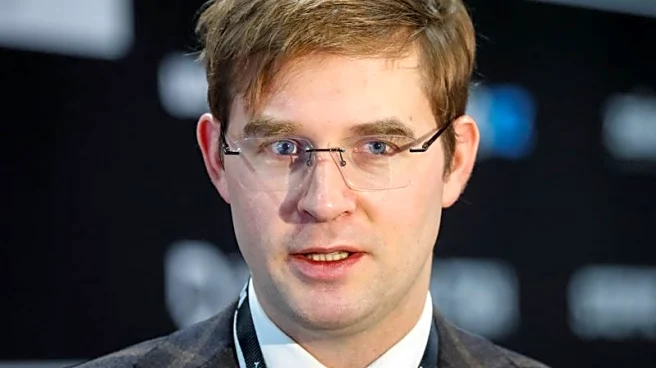What is the story about?
What's Happening?
Prime Minister Benjamin Netanyahu delivered a speech at the United Nations General Assembly, emphasizing Israel's strategic clarity and moral resolve. He highlighted Israel's non-negotiable security needs and addressed regional issues, including the plight of Syria's Druze community. Netanyahu's speech underscored Israel's role as a defender of its citizens and vulnerable minorities in the Middle East. However, the speech lacked a detailed plan for the 'day after,' which is crucial for addressing the underlying causes of instability and achieving sustainable peace. The release of hostages held in Gaza was identified as a critical component of any future diplomatic framework. Netanyahu called for a comprehensive plan that includes hostage release, demilitarization of terrorist groups, international oversight of humanitarian aid, and a counter-radicalization strategy.
Why It's Important?
Netanyahu's speech is significant as it highlights the urgent need for a comprehensive strategy to address regional instability in the Middle East. The emphasis on Israel's security and the plight of minorities underscores the complex geopolitical challenges in the region. The lack of a detailed post-war roadmap raises concerns about the sustainability of peace efforts. The international community's role in uniting against radical Islamist extremism is crucial, as military victories alone are insufficient to address the root causes of extremism. The speech calls for regional alliances, intelligence-sharing, and proactive measures to prevent future conflicts, which are essential for long-term stability.
What's Next?
The next steps involve developing a detailed post-war roadmap that addresses the underlying causes of instability in the Middle East. This includes securing the release of hostages, demilitarizing terrorist groups, and implementing international oversight of humanitarian aid. The international community is expected to play a significant role in supporting these efforts and uniting against radical Islamist extremism. Regional alliances and intelligence-sharing will be crucial in preventing future conflicts and ensuring lasting security.
Beyond the Headlines
The speech highlights the ethical and humanitarian dimensions of the Middle East conflict, particularly the plight of minorities and hostages. The call for a comprehensive counter-radicalization strategy points to the need for long-term cultural and educational initiatives to address extremism. The emphasis on international oversight of humanitarian aid reflects the importance of ensuring that aid reaches those in need without being diverted to support terrorism.


















